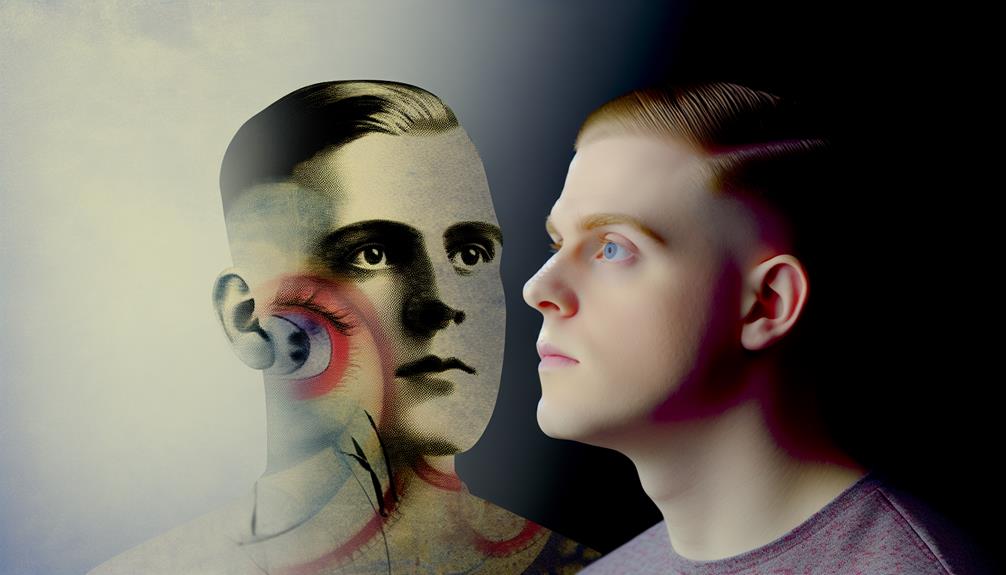Passing, Not Passing, Clocked as Trans


Table of Contents
ToggleDespite the increasing awareness and acceptance of transgender individuals, the issue of ‘passing’ remains a complex and contentious topic within the community. The fear of being ‘clocked’ as trans can create a significant barrier to feeling safe and validated in one’s gender identity.
As society continues to grapple with understanding and embracing diverse gender expressions, the nuances of this struggle must be carefully examined. But what does it truly mean to ‘pass’ as a certain gender, and how does it impact the lived experiences of transgender individuals?
The fear of being ‘clocked’ is a significant concern for many transgender individuals, stemming from experiences of misgendering, transphobia, and past traumas. This fear can have a profound impact on mental health, leading to anxiety, stress, and a constant feeling of vigilance in public spaces.
To manage this fear, individuals often employ strategies such as altering their appearance, mannerisms, or speech to align with societal gender norms. Building confidence is also crucial, and this can be achieved through therapy, self-affirmation, and accessing supportive communities and resources.
Navigating public spaces while dealing with potential discrimination requires a balance of vigilance and self-assurance. Supportive communities and resources play a vital role in alleviating the fear of being ‘clocked’ by providing a sense of belonging and understanding. Celebrating individuality within these communities fosters self-acceptance and confidence.

Challenging societal constructs involves confronting and dismantling traditional gender norms and expectations. This includes recognizing and embracing gender fluidity and non-binary experiences. Intersectionality and passing play a crucial role in this, as people from different racial, cultural, and socioeconomic backgrounds may have varied experiences in navigating societal norms.
It’s essential to empower transgender voices and increase trans visibility to foster understanding and acceptance. Deconstructing gender norms is a key component of this, as it challenges the rigid boundaries of traditional gender roles.
Moreover, transgender representation in media plays a significant role in shaping societal perceptions and attitudes towards gender identity. By promoting diverse and authentic portrayals of transgender individuals, media can contribute to breaking down stereotypes and promoting inclusivity.

Redefining gender identity involves embracing diverse experiences and breaking down societal norms to foster understanding and acceptance. This encompasses gender fluidity, non-binary identities, and gender expression. It also involves acknowledging intersectionality and gender, ensuring trans visibility, and promoting trans inclusivity.
Gender dysphoria, the distress experienced due to a disconnect between one’s assigned gender and gender identity, is a significant aspect of this redefinition. By recognizing and validating various gender identities, society can move towards a more inclusive and affirming environment for all individuals.
Redefining gender identity requires challenging traditional binary concepts and acknowledging the spectrum of gender experiences. It involves creating space for individuals to express their gender in ways that align with their authentic selves, without conforming to societal expectations. This shift towards inclusivity and acceptance is crucial in fostering a more supportive and understanding society for all gender identities.
Embracing self-acceptance involves acknowledging and appreciating one’s own unique qualities and identity. It means letting go of the need for external validation and finding contentment within oneself. Self-acceptance entails recognizing and embracing strengths and weaknesses without judgment, practicing self-compassion, and setting healthy boundaries for personal well-being.
To delve deeper into this journey of self-acceptance, individuals can focus on the following aspects:
Moving beyond the pursuit of external validation, individuals can embrace a more holistic understanding of their gender identity by considering the impact of societal expectations on their self-acceptance.
Exploring personal authenticity becomes a key aspect of this journey, allowing individuals to move towards gender expression that feels genuine and true to their inner selves. This involves overcoming societal expectations and redefining beauty standards that have traditionally been restrictive and binary.
Navigating identity disclosure also becomes an important part of this process, as individuals embrace their individuality and seek to build a supportive community that understands and respects their unique journey.
By moving beyond the narrow focus on passing, individuals can prioritize their own self-acceptance, creating a space where they can thrive authentically and confidently.
Embracing personal authenticity and building supportive communities are crucial steps in this ongoing process of self-discovery and empowerment.
Trans passing refers to a trans person being perceived as cisgender. It’s a crucial element of gender identity, social acceptance, and legal recognition. Passing privilege can impact a person’s gender affirmation and self-identification.
Gender expression is often tied to passing, but it’s important to challenge societal constructs and support diverse expressions. Understanding the complexities of passing is essential in creating a more inclusive society that values all gender identities.
A cisgender person’s gender identity aligns with the sex they were assigned at birth. Understanding cisgender identity is crucial for building empathy and inclusivity.
It’s essential to create a safe space where trans individuals can explore their fears and work towards self-acceptance. Challenging societal constructs and promoting community support can contribute to a more inclusive society where gender identity isn’t solely based on passing.
This understanding is vital for mental health and intersectional identity.
A passing transition involves a transgender individual’s successful presentation as their gender identity. It encompasses aspects like gender expression, personal safety, and internal identity validation.
The journey involves challenges, anxiety, and the pursuit of confidence and self-acceptance.
Tips for passing in social interactions or public spaces often revolve around conforming to societal gender norms.
It’s a complex experience influenced by societal constructs and individual fears.
Gender dysphoria is a mental health condition characterized by emotional distress and discomfort due to a mismatch between one’s assigned gender and their gender identity. It can cause dissatisfaction with physical characteristics and distress related to societal gender expectations.
Treatment may include therapy, hormone therapy, and gender-affirming surgeries to alleviate distress and help individuals live authentically.
Understanding and providing social support for those with gender dysphoria is crucial for creating inclusive environments.
Despite society’s obsession with ‘passing’ and the fear of being ‘clocked’ as trans, the true irony lies in the fact that authenticity should never be masked or hidden.
The struggle to conform to societal norms only perpetuates the cycle of fear and discrimination.
It’s time to challenge these constructs and create a world where individuals can embrace their true selves without fear.
Embracing authenticity is the key to dismantling prejudices and fostering a more inclusive society.
Originally posted 2024-04-27 17:21:56.
 Featured PostsNovember 24, 2025What Changes Can You Expect From Transitioning? (MTF)
Featured PostsNovember 24, 2025What Changes Can You Expect From Transitioning? (MTF) Featured PostsNovember 21, 2025From Uncertainty to Growth: Mastering Life Changes
Featured PostsNovember 21, 2025From Uncertainty to Growth: Mastering Life Changes News and AdvocacyNovember 21, 2025Doctor or Not? RFK Jr. Faces Backlash Over Affirming Care Study Endorsement
News and AdvocacyNovember 21, 2025Doctor or Not? RFK Jr. Faces Backlash Over Affirming Care Study Endorsement Fashion and ExpressionNovember 20, 2025Unspoken Signals: How Women Navigate Attention and Identity
Fashion and ExpressionNovember 20, 2025Unspoken Signals: How Women Navigate Attention and Identity